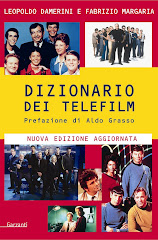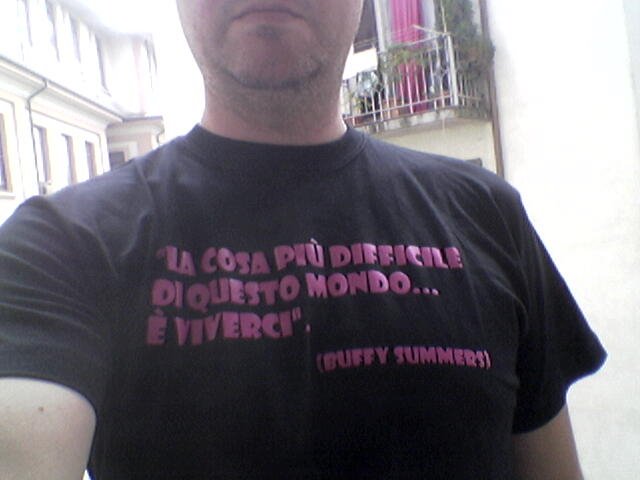(CNN Entertainment) -- In March, 9 million viewers tuned in to AMC to watch a farm -- which served as a safe haven to survivors of a zombie apocalypse -- burn to the ground on "The Walking Dead."
This Sunday, TNT (a Time
Warner network, like CNN) commences its second season of "Falling
Skies," which sees a group of survivors fight back against alien
invaders while their home state of Massachusetts lies in ruins.
Switch over to NBC, and
you're likely to see promos for "Revolution," a series about what
happens 15 years after the loss of all advanced technology and
electronics.
Post-apocalyptic
scenarios are cropping up all over the small screen -- oddly enough, in
the year 2012. But is the runaway success of "The Walking Dead" the main
reason for it, or is there something else going on here?
"There's always a copycat trend in the industry," TV critic Ryan McGee said, pointing to last year's "Pan Am" and "Playboy Club," both of which drew comparisons to "Mad Men."
"There's no way executives aren't looking at the ratings for 'The Walking Dead' and aren't salivating."
At the same time, he says, "Revolution" has to forge its own creative path to survive.
"Everyone imitates everything that's successful," said fellow critic Alan Sepinwall, who doesn't see it so much as a trend but as a coincidence. "Or simply that ideas go in cycles."
Indeed, TV has been down
this road before, with the short-lived cult favorite "Jericho" exploring
a scenario of society rebuilding after a nuclear attack.
Jamais Cascio,
an ethical futurist with a background in television, noted that various
aspects of "The Walking Dead" are being replicated now: "The rule of TV
production is to figure out what aspect of a surprisingly success show
made it a winner. We're seeing other comic book-based stories in
development, other supernatural stories and other post-apocalypse
stories."
Actress Jessy Schram,
whose character, Karen, was last seen having been "harnessed" by the
aliens on "Falling Skies," actually took a look at "The Walking Dead" as
a sort of homework assignment.
"It was interesting to
watch and take notes, and compare the similarities and differences," she
said, "to compare it to 'Falling Skies' to see what a world taken over
by another species would be like."
Schram, also known for
her recurring role as Cinderella on "Once Upon a Time," has another
upcoming series, ABC's "Last Resort," with something of a twist on the
same themes: The crew of a submarine disobeys orders to avoid nuclear
war and ends up retreating to an island.
"They're having to start over and form their own living and way of protecting themselves," she explained.
"Even though it's very different (from 'Falling Skies'), it has that same theme of 'who do I trust?' "
She said she and other actors on "Falling Skies" asked themselves what they would do in a post-apocalyptic scenario like this.
"What tools would I have
to work with? If I don't have transportation or a gun or a knife or
even a steak dinner, what am I actually feeling? There's a lot of
desperation in that situation, but there can also be a lot of joy as
well."
"Revolution's" creator, Eric Kripke ("Supernatural"), hopes to explore that joy or at least have more fun with it.
"The apocalypse kind of
bums me out," he admitted in a meeting with J.J. Abrams' Bad Robot
Productions when the series was being developed.
Kripke wanted to do a
show based around the elements of Joseph Campbell's "hero's journey,"
which were perhaps best exemplified in "Star Wars." The Abrams team was
looking at a series that began with the cataclysmic scenario of that
loss of electricity and technology.
Instead of dealing with the immediate consequences of that event, "Revolution" flashes forward 15 years later.
"That is an interesting
world," Kripke said. "It transforms into a kingdom with good warriors
and bad warriors. That's a world that's gone back to swords. It's about
people living in a world that nature has reclaimed."
Kripke can see the current mood being reflected in series in a post-apocalyptic vein.
"There's something in the collective zeitgeist that people feel we're headed towards a cliff," he said.
"The population is
massive, we're separated from our food supply, we're eventually going to
run out of oil, and there's international tensions. People feel like
we're really out of balance and due to be knocked down a peg by war or
disease or something."
Kripke wanted to explore the story on the "other end" of that.
"We're not interested in
nihilism or hopelessness. We'll all survive and be OK if we remember
the things that bring us together: family, brotherhood and mercy."
Ultimately, though, as
McGee points out, "What 'Revolution' needs is what every show needs:
five characters people care about. Why the lights went out turns into a
bit of boring trivia without that emotional investment."
The rules of great TV are the same, even when the world seems to be coming to an end.














.jpg)
















Nessun commento:
Posta un commento